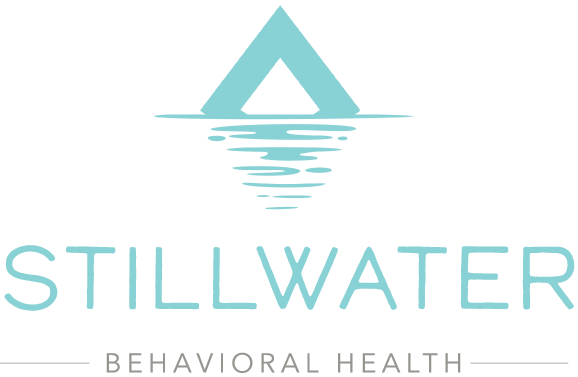If you’re looking into rehabilitation options, you may have seen MAT offered at several locations or the designation of “medically-supported treatment.” But what is it?
MAT is a treatment program that uses FDA approved medications to help individuals addicted to alcohol and opioids reduce or quit using or drinking. MAT is used in combination with counseling and behavioral therapy to provide a total-body wellness plan for addiction treatment.
If you are interested in learning more or finding a program that utilizes MAT, medication assisted treatment, contact Stillwater Behavioral Health. Our progressive addiction treatment program combines evidence-based addiction treatment with MAT to provide a holistic healing experience.
What Is MAT (Medication Assisted Treatment) Therapy?
MAT, medication assisted treatment, is the process of using medication to help treat drug or alcohol addiction. These FDA approved medications are used in combination with counseling and behavioral therapies, like cognitive behavioral therapy, to provide a holistic approach to addiction treatment.
According to SAMHSA, Substance Abuse and Mental Health Services Administration, “The prescribed medication operates to normalize brain chemistry, block the euphoric effects of alcohol and opioids, relieve physiological cravings, and normalize body functions without the negative and euphoric effects of the substance used.” By removing cravings and normalizing body functions, clients can focus on their goal of sobriety and ween off using medications to complete this process.
For alcohol, MAT approved medications include acamprosate, disulfiram, and naltrexone. These medications encourage individuals to stop drinking through psychological deterrents. Acamprosate, for example, makes individuals sick if they drink while taking the medication. Additionally, it is important to note that naltrexone should not be prescribed to individuals with an opioid use disorder as this can initiate opioid withdrawal causing extreme reactions to the medication.
Opioids have a different set of MAT approved medications. “Buprenorphine suppresses and reduces the cravings for opioids, methadone reduces opioid cravings and withdrawal and blunts or blocks the effects of opioids, and naltrexone blocks the euphoric and sedative effects of opioids and prevents feelings of euphoria.” Additionally, opioids have an overdose prevention drug, Naloxone which blocks the effects of opioids and can sometimes prevent an overdose from being fatal.
If you think that MAT (medication assisted treatment) may be right for you, contact us today, at Stillwater Behavioral Health.
Types of Medication Assisted Treatment
What is medically assisted treatment? Used in conjunction with behavioral therapy and counseling for a well-rounded, holistic approach to addiction treatment, medication assisted treatment involves using specific medications to help treat alcohol addiction and addiction to drugs like opioids.
Medication Assisted Treatment for Alcohol Addiction
As with any type of addiction treatment, it is important to understand where an individual is at with their level of alcohol addiction, as this will oftentimes dictate what level of treatment will be needed to assist in a full recovery. In cases where therapy and counseling are not achieving the desired results of getting someone to put the bottle down, medication assisted treatment will be the next step. This will generally involve introducing medications that act as a deterrent from alcohol, including making an individual feel sick if they ingest alcohol while taking these medications. This allows a person to slowly wean off alcohol without simultaneously creating another addiction or dependence on something else.
Medication Assisted Treatment for Opioid Addiction
As stated with alcohol and other types of addictions, it is important to assess the level of addiction an individual has with opioids. There is a point that can be reached where the body and mind become physically dependent on these substances, and a lack of opioids in the bloodstream can begin leading to withdrawal symptoms. Depending on the opioid a person has become physically dependent on, these withdrawal symptoms can oftentimes cause severe pain and discomfort, including headaches, fever, and vomiting. So what is medically assisted treatment when it comes to opioids? Medication-assisted treatment programs for addiction to these substances will involve a patient taking medications that counteract or blunt the effects and feelings of opioids. Some addiction treatment medications can even prevent overdosing on opioids. Mat substance abuse treatment should definitely be considered for those experiencing dependency.
Is It Ok to Treat Drug Addiction With Other Drugs?
By making the distinction between drugs and medication, individuals can get treatment for their drug addiction with medication. MAT, medically assisted treatment, when used in combination with counseling and behavioral therapy, is believed to increase the likelihood of sustainable recovery. “Improving access to prevention, treatment, and recovery services, including the full range of medication-assisted treatment (MAT), is a focus of the FDA’s ongoing work to reduce the scope of the opioid crisis.” Through this process, it is becoming a common and recommended method for addiction treatment.
What Are The Advantages and Disadvantages of Medication Assisted Treatment?
In dealing with addiction treatment that requires an individual to consume another type of drug to aid in recovery, there will be advantages and things that can be seen as disadvantages. Understanding what is mat therapy as it pertains to a specific type of addiction will allow you to uncover these pros and cons. The most clear advantage to mat therapy is providing a safe environment for patients to go through withdrawal in. Withdrawals from alcohol and opioids can be very discomforting, and the associated cravings that come along with withdrawal can cause people to act out in unfavorable ways, so it is important to facilitate this process in a controlled environment. Mat therapy also inherently decreases substance use and abuse, and can help prevent relapse due to the holistic nature of including therapy and counseling as part of treatment.
Some of the disadvantages of MAT are apparent when you fully understand what is medically assisted treatment. This is not a type of treatment that can be done alone or with assistance from someone untrained. Because of this, patients will need close supervision by a medical practitioner that is well versed in what could happen during this type of treatment. A more obvious drawback to MAT is that you are treating an addiction with other substances, some of which can lend themselves to abuse, further causing an addiction that replaces the one preceding the opioid or alcohol addiction.
How Long Does Medically Assisted Treatment (MAT) Last?
MAT is all about consistency once immediately getting an individual away from whatever it is they are addicted to. Once treatment begins, it is generally advised that patients stay on this treatment program for no less than 12 months. In many cases, it can be necessary to continue treatment for as long as possible, extending treatment well beyond 12 months.
Does Insurance Cover Medically Assisted Treatment (MAT)?
The short answer is “yes”. Substance addiction and treatment is deemed a medical necessity, and insurance providers will offer coverage. For the most accurate information, it is important to understand what your specific provider covers.
What is the Best Way to Treat Addiction Without Using Drugs?
There is no one answer to this question. A great treatment option to getting over addiction without the use of drugs is to seek behavioral therapies and counseling. Having a strong support system and understanding your ultimate motivation for beating your addiction will play a huge part in achieving your desired outcome. This rings true whether you are seeking to treat addiction with or without drugs.
What Medications are Used in Addiction Treatment?
Medications used to treat addiction will vary by what type of addiction an individual has. Certain medications used to treat alcohol addiction cannot be taken by those seeking to use drugs to treat opioid addiction. Different facilities will administer different medications for the same types of addiction, and the best thing you could do is call ahead and go through a screening process to see what treatment options would be best for your situation.
How Can Stillwater Behavioral Health Help You or Your Loved One Overcome Addiction Today?
Stillwater Behavioral Health is an addiction rehabilitation program that provides the option of MAT, medication assisted treatment, to our clients. Medically assisted detoxification and rehabilitation options improve client experiences and allow them to focus more on sustainable recovery. Our Montecito, California residential treatment program combines high-quality care with a luxury environment to ensure a safe and relaxing rehabilitative experience.
At Stillwater Behavioral Health, our addiction rehabilitation programs are specifically tailored to meet the individual addiction treatment needs of our clients. By combining alternative and traditional therapy options, our clients can experience a holistic treatment program designed to meet the needs of their mind, body, and spirit.
Contact us today at Stillwater Behavioral Health to see how our MAT, medication assisted treatment, can support you on your journey of recovery.







